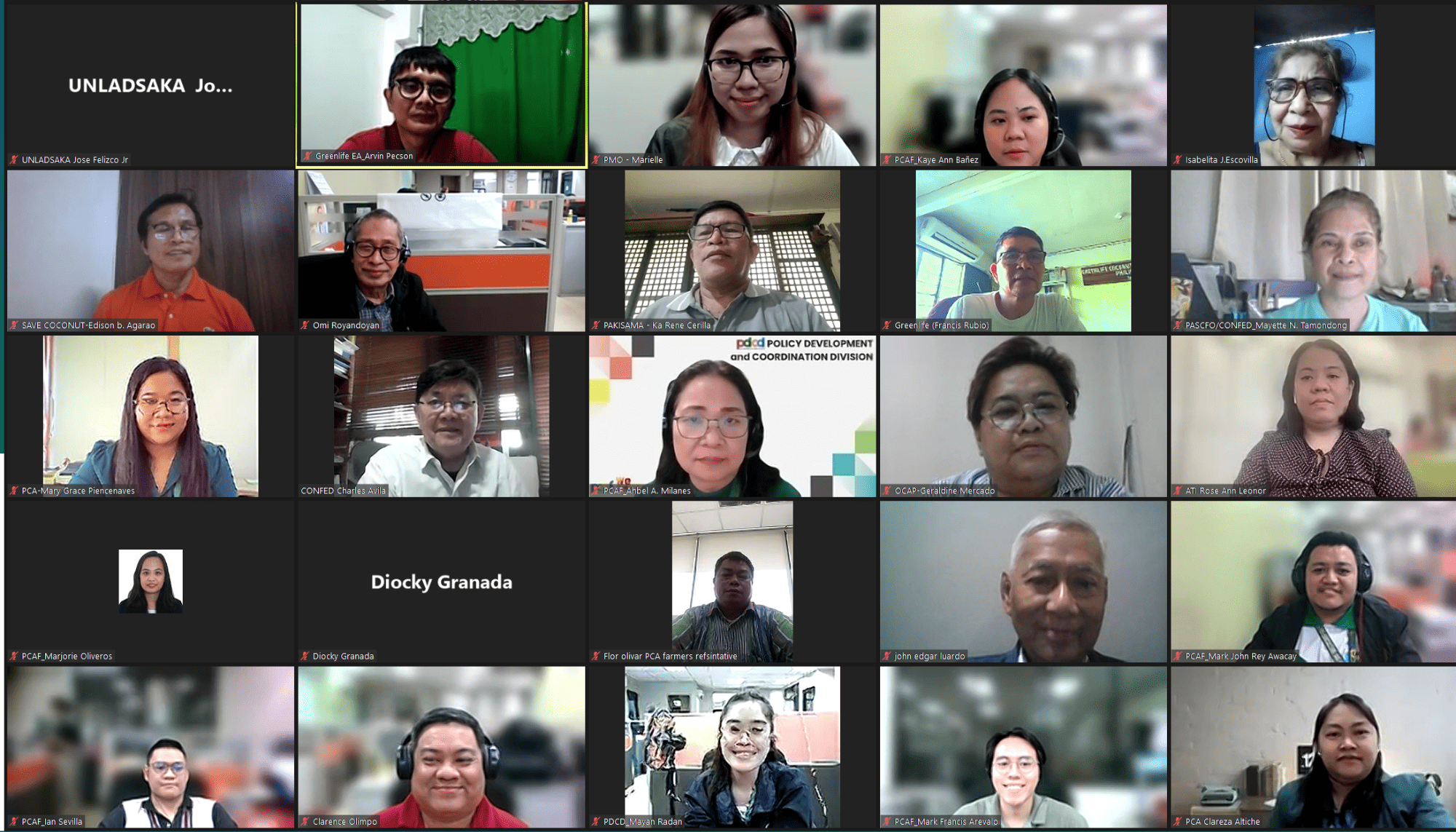
Starting with the National Sectoral Committee (NSC) on Coconut, the Philippine Council for Agriculture and Fisheries (PCAF) enhances the participation of private sector in the Department of Agriculture’s (DA) budget preparation through the involvement of its consultative bodies.
On February 21, 2024, the Philippine Coconut Authority (PCA) presented its plan and budget proposal for Fiscal Year 2025 to the NSC on Coconut via Zoom.
PCA Executive Assistant Mary Grace Piencenaves discussed the agency’s side-by-side plan and budget for FY 2023-2025 along with the current industry situation that served as basis in developing their FY 2025 proposal.
Piencenaves reported that out of the 340 million coconut trees in the country, 10% or 34 million are senile and 50% or 170 million are nutrient deficient. This led to low coconut yield at 45 nuts per tree each year for a total of 14 to 15 billion nuts annually.
Given this, PCA’s proposed plan and budget for 2025 focuses on massive coconut planting using hybrids and outstanding local cultivars (both tall and dwarf) and intensified coconut fertilization using PCA-recommended organic and inorganic fertilizers.
PCA also aims to promote intercropping of high-value crops to increase the income of coconut farmers by 100% annually and intensify product promotions to sustain and develop domestic and international markets for coconut products and by-products.
Pambansang Kilusan ng mga Samahang Magsasaka (PAKISAMA) Former President Ireneo Cerilla commented that among the major problems of coconut farmers is the lack of organization. He proposed the allocation of funds to aid farmers in organizing themselves to form associations and cooperatives to access the Coconut Farmers and Industry Development Plan (CFIDP) and other government programs.
Piencenaves explained that the organization of farmers is lodged in the CFIDP, which is still in the process of amendment to streamline processes, but nevertheless assured that PCA will take the proposals into consideration.
In line with this, PCA Program Management Office Acting Department Manager Kreisha Ainna Marielle Roque confirmed that cooperatives need to be registered in the Cooperative Development Authority and accredited by the PCA to become beneficiaries of the CFIDP programs.
Cerilla also suggested for PCA to include in their budget the provision of coconut processing trainings to farmers in order to increase their income. He further requested that these trainings not only involved copra processing but also other coconut products.
Piencenaves clarified that although there are no programs related to this in the FY 2025 plan and budget proposal, these initiatives are already included in the CFIDP. Regardless, she assured that they will look into the possibility of considering the suggestion and ensure that there will be no duplication of projects between the agency’s budget and the CFIDP.
Other recommendations during the meeting involved guaranteeing equal access to the scholarship program for coconut farmers and their family members as well as preparing a contingency or recovery plan for disaster-hit coconut areas.
The Committee recommended to incorporate these suggestions in the FY 2025 Plan and Budget Proposal of PCA.
Meanwhile, Roque informed the body that PCA is preparing for a public consultation that aims to review the CFIDP for possible amendments. The target schedule of the consultation is on the first or second week of March and this will be participated by coconut farmers.
The NSC on Coconut requested PCA to include them in the public consultation and present the possible amendments to the Committee for their reference and potential endorsement to the Office of the DA Secretary. | Joy Camille Luza











